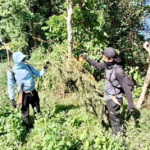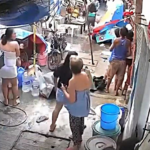
Sari-sari stores are regarded as reliable community establishments in the Philippines. These bridge access gaps in underdeveloped areas, offer small-volume purchases for households on a restricted budget, and often extend loans based on established neighborhood links. They sustain hyperlocal economies and play a crucial role in the country’s retail landscape.
Puregold, one of the nation’s leading retailers, has long recognized that the health of this micro-retail sector is closely linked to the health of the broader retail landscape. The company’s growth and national presence have been greatly aided by its extensive network of sari-sari store partners.
Vincent Co., president of Puregold Price Club Inc., is spearheading a project that revolves around this understanding. His support for regional business owners who sustain the country’s grassroots economy is seen in the “Sari-Sari Stories” series. The program recognizes the vital role these neighborhood mainstays play in both local and national economic activity and celebrates the people in charge of them.
“Puregold’s continued success reflects the unrelenting hard work of our sari-sari store members,” stated Co.
“With ‘Sari-Sari Stories,’ we aim to celebrate them not only as collaborators but also as proud Filipino icons. Puregold remains committed to ensuring that the humble tindahan continues to thrive and remains a meaningful part of every community,” he continued.
The company’s impressive third-quarter results show how important these partnerships are strategically. “Longtime sari-sari store owners and local retailers, who depend on Puregold as a reliable supplier and business partner, continue to be a major factor in the company’s steady growth,” Co shared.
The brand recognizes these businesses and reiterates its commitment to inclusive growth and community-centered development through the “Sari-Sari Stories” series, which featured an appearance by SB19 member Stell Ajero. The campaign aims to raise awareness of the critical role sari-sari stores play in sustaining local economies and encouraging grassroots commerce.







